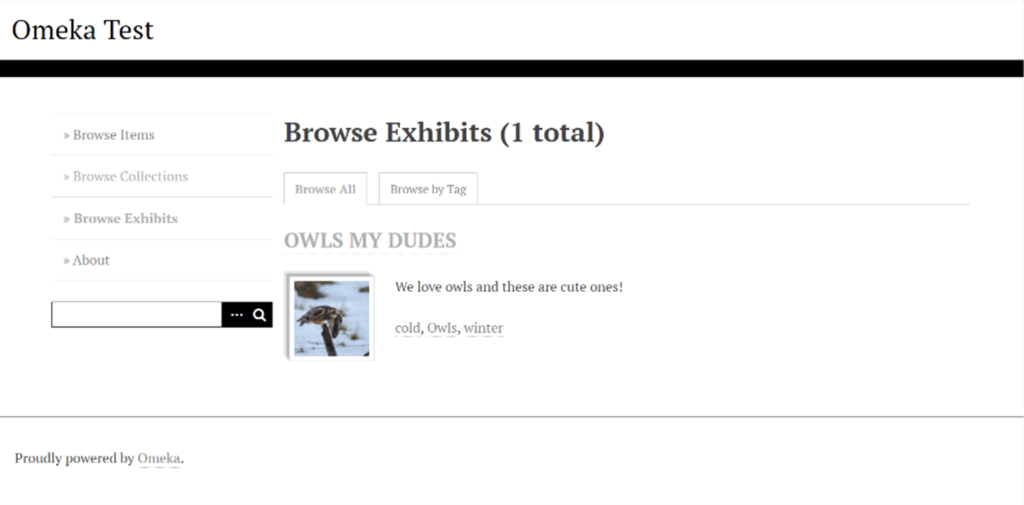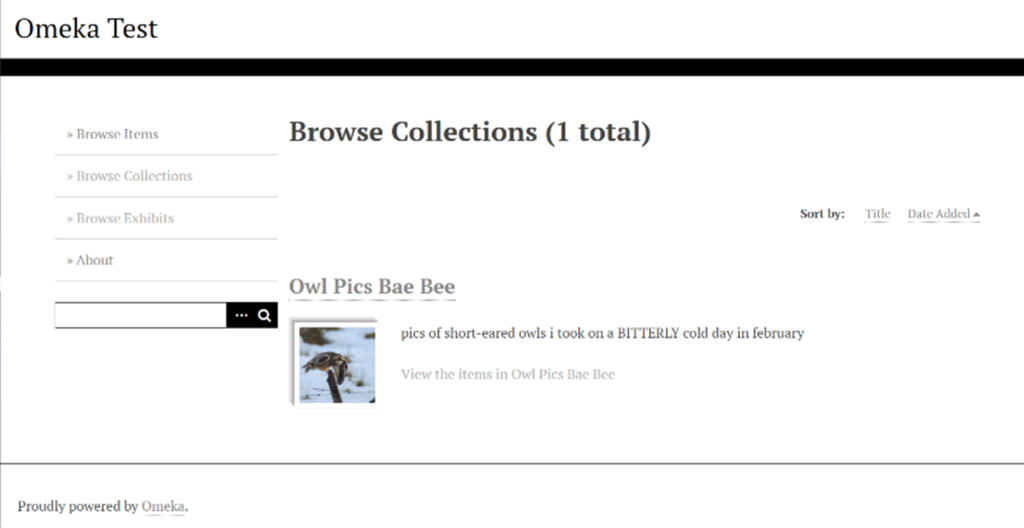It’s been a…very busy week.
I mean, it’s entirely my own fault. That’s what you get when you plan too many things for the same weekend. Note to self: do not schedule a trip to northern Pennsylvania and a 5k at Mount Vernon within a day of each other ever again.
Anyway.
But if I had to be busy, I’m glad it was this week—solely because we got to discuss a topic I’m very much interested in as well as experiment with a software I intend to use repeatedly. First, copyright and open access.
I’ve always been familiar with copyright on some level, mostly because of my experiences in content creation and event planning. As an undergraduate, I was highly involved in our Student Government Association, which primarily worked with club funding and management. Consequently, every time a club wanted to host a movie night or show any sort of feature, SGA would grant funds for the rights to show the film. Because of this, I became vary familiar with the legal ins and outs of the differences between owning a film and being able to show a film to an audience in a university setting. The price of purchasing the rights to show a film varied depending on the age, length, and content of the film (fun fact: it’s about $525 to show Jurassic Park and about $1,000 to show Titanic for one night). I remember being initially confused as to why we couldn’t just show a video if it was posted on YouTube or if we had access to Netflix, and even more confused at the hoops we had to jump through depending on whether we were renting a DVD to show or if we were streaming it.
Thus we see the origins of my reflex headache when it comes to copyright. It certainly does not help that copyright law has not exactly aged well. One of the questions for our small group discussion this week was, “Are copyright and publishing fundamentally broken?” The short answer: um, yes. Copyright and publishing as a system were designed in an age before the internet and, more importantly, the sheer accessibility it offers. When the internet did come around, copyright law did not evolve to accommodate it accordingly. Now, it exists as a virtual nightmare regarding access to information and is holding back advances in many fields. Publishers are too interested in the financial aspects of royalties and copyright to consider alternative solutions, and scholars are still too entranced with the idea of journalistic prestige and traditional publishing standards in higher academia to push for something different. Which brings us to the topic of open access. My viewpoint on this is relatively straightforward: the goal of research is to share knowledge, and to share knowledge is to become the foundation of more research. I don’t believe it’s scholars and researchers standing in the way of this (or librarians, for that matter), but rather the journals and publishing houses of the academic world. Like we’ve discussed before, academia of the history variety, especially, is pretty well-steeped in prestige and the name game. Journals and publishers are able to feed off of this; honestly, it’s these constructs that keeps journals and other publishing houses in business right now. If I think about the sheer amount of money changing hands in regard to academic publishing, it raises my blood pressure. But then again, I tend to forget that higher education is too much of a business right now.
Aside from such stimulating conversations, the technical exercise this week was to experiment with the Omeka platform. As someone who is not only interesting in digital exhibitions personally but also as part of a group project considering the platform, messing around making test exhibits was eye-opening. Omeka is a decently powerful platform that is really easy to pick up and utilize—Emily and I had absolutely no problem. It was pretty refreshing. And as I just so happened to have a bunch of photos of short-eared owls, you can imagine what our exhibit and collection ended up being about: https://omekatest.hayleymadl.com/. Hopefully, my group can come up with a creative way to utilize Omeka for our semester project. The possibilities are pretty endless.


(Also, disclaimer: I’ve only ever seen one or two episodes of The Office but I really couldn’t resist the title)
I’ve had to deal with copyright in increasing amounts as I have progressed through my education here at Mason. I’m even starting to have to be aware of it during my internship. But it has never occured to me that there would be restrictions on how you could show a movie during a club meeting on campus. I’m glad that you were exposed to copyright issues much earlier than me, it gives you more time to comprehend it rather than a crashcourse that may not cover everything.
Lol are you pulling a me? After Pittsburgh, I made my way to Philly and Delaware for a multi-day trek with some folks on campgrounds. My body is beat, and I have a work event at NYFF this weekend. I never want to travel again for the rest of the year.
I am loving this gallery of owls y’all did for your Omeka practice. I regret not being able to be in class for the madness. What digital exhibitions have interested you?
I was particularly fascinated by Clio. The idea of a Pop Up Video style historical interactive experience around me came to mind as I typed in random address upon random address.
As for copyright, I echo a lot of what you said here — I’m always looking for the ways copyright inhibits access to things even the original authors of material would prefer to have their own domain over or allow into the public domain. I wrote about some punk rock exhibitors in my blog entry over at The Cinephobe who screen films for free online that have had the rights usurped by corporations, expired and have no budget to re-screen legally, or “lost” films where the paper trail of who owns what is… lost. Ya gotta check out the website if things of that nature interest you!
What can I say, you inspired me haha.
I’m obsessed with the idea of interactive exhibits, whether in-person or digital. Clio was great, and so was Histories of the National Mall. I feel like people learn so much better from more immersive experiences.
I’m definitely going to check out that website!
Hi Emily!
I would firstly like to know where your collection of owl pictures came from- I think birds rock (and my roommates will never cease to make fun of my bird knowledge) but owls especially are cool.
I think I said every statement you did with less clarity and detail. Copyright is antiquated in our digital age, and systems that prop it up exist to make money rather than further knowledge. I love that you pointed to, but did not drag in, the fact that many institutions are for-profit ventures at this point in the 21st century. Academia as a business structure is something that is frequently relevant in our class but we haven’t had a big conversation about it (maybe that day is coming). Until then we battle onwards with freely available software and the Fair Use Act! P.S. The Office reference was spot on.
Ahaha I actually took those pictures myself! I was in an Ecology and Environmental Biology lab in undergrad and our professor was big into bird watching, so I ended up with a lot of pictures of different birds. The owls are the coolest though. Those pictures were taken at about 4pm in Randolph, New York!